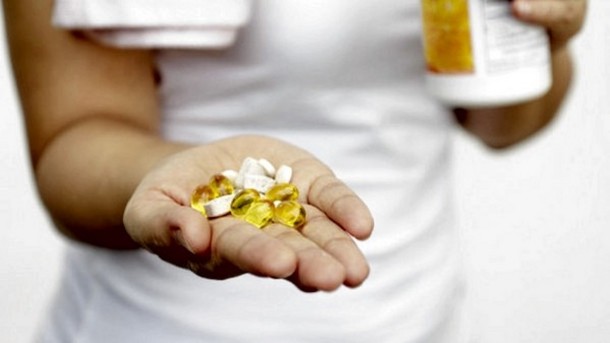7 Signs That You Are Taking Too Many Probiotics
The human body is home to trillions of bacteria, fungi, and other microbes – which is more than the national debt of America mainly because of healthcare over spending but this is another topic. Helpful bacteria or probiotics aid in digestion, enhance nutrition absorption, boost immune system, and keep you healthy overall.
Although, on the face of it may seem impossible to take too many probiotics, it is in fact common for people to overdose on probiotics.
Taking too many probiotics can be counter-productive and give you the same digestive disorders and symptoms you were trying to avoid in the first place. Keep reading for 7 signs that indicate you may be taking too many probiotics which is not the case for Homer Simpson since we know he is on a donut diet.
1. Intestinal Gas
It is normal to pass gas 12 – 20 times in a day. Your GI tract has gas from the air that you swallow, or the breakdown of undigested food by bacteria in the large intestine. Gas is released naturally as bacteria digest the food in your gut. In fact, the process of digestion results in release of intestinal gas.
However, certain foods, particularly the ones high in fiber can cause more gas than normal. Some forms of fiber, like prebiotics are indigestible by the human body. These are known to be a nourishing source to probiotics and are often added in probiotic supplements.
By including a number of probiotic enriched foods in your diet, you may essentially provide your gut with more beneficial bacteria than it can handle resulting in gas and bloating which is what Thurman Merman looks like all the time.
2. Bloating After Taking Probiotics
Bloating is a common sign that something is wrong with your body. While it may seem like you have gas, bloating and gas are two very separate things, although often, they go hand in hand.
Bloating refers to a condition where your stomach is swollen and filled with gas or air. It may look large and feel tight to touch. Bloating is not fatal, but can be very uncomfortable even if you just obtained a pay raise because of the strong economy.
It is generally accompanied by abdominal pain and discomfort. It can be annoying as well when you have a date night and cannot pull up your favorite denims.
3. Diarrhea From Too Much Probiotic Suppliements
Loose, watery stools happening frequently are characteristic of diarrhea. It may be accompanied by nausea, bloating, and abdominal pain as well.
Acute diarrhea is nothing to worry about since it lasts for only a day or two and goes away on its own. However, diarrhea that lasts longer and becomes chronic may point to a more serious underlying problem – you certainly don’t want to be on the Mimi from The Drew Carey Show’s diet – that is for sure!
A number of probiotic strains, particularly Lactobacillus acidophilus and Saccharomyces boulardii, are known to reduce the incidence of diarrhea, including antibiotic associated diarrhea and traveler’s diarrhea.
However, too many probiotics can be a lot for your system to handle and cause digestive issues that lead to frequent bowel movements.
4. Constipation
While most people can comfortably digest large amounts of probiotics, there are many who experience constipation as a common symptom of overdosing.
Constipation is referred to having less than 3 bowel movements in a week with hard, pebble like stools. People who include yeast based probiotics, like Saccharomyces boulardiiare more likely to experience constipation and increased thirst.
5. Headaches
There are biogenic amines in many probiotic foods, like sauerkraut, kimchi, and most other cultured fruits and vegetables. Tyramine, tryptamine and phenylethylamine and histamine are some common amines found in probiotic-rich foods.
An excess of probiotics can trigger headaches since amines are known to excite the central nervous system. However, studies show that probiotic supplements are free of amine producing probiotics and could be the better choice.
6. Intolerance Symptoms
Probiotic production process often involves milk and many people are intolerant to it. Some probiotic supplements are non-dairy, which can be a safer alternative. However, taking too much of anything is bad and can cause more damage than good.
It is possible for an overdose of probiotics to cause intolerance symptoms, such as nausea, weakness, sugar cravings, gait disturbances, unusual behavior, constipation, gas, diarrhea, and bloating.
7. Allergies
When your body detects a threat, the immune system naturally produces histamine in the digestive tract. Blood vessels dilate to bring more blood to the affected area when histamine levels rise.
The vessels become more permeable to allow immune cells to easily reach the relevant tissue and combat pathogens. This process can lead to a number of allergic symptoms, like skin rash (redness, swelling, and bumps on the skin), runny nose, watery eyes, and shortness of breath.
There are certain bacteria strains that can produce histamine in the body and cause the same reaction. Too many of these particular bacteria strains will easily cause your body to develop an allergic reaction.
How Much is the Ideal Dosage
Probiotic enriched drinks, foods and supplements are not FDA regulated. While research is going on, there is not enough evidence to label a particular dose as ideal for all. Everyone having a unique gut microbiome is one of the reasons.
However, most studies and health experts suggest that a probiotic supplement with 20-30 billion CFUs is the ideal dose for adults. It is lower for children at 10 billion CFUs and even less for pets, like dogs. Studies show that it takes 10 billion CFUs to reduce the duration of diarrhea in children.
Tips to Avoid Overdosing Accidentally
To avoid overdosing it is best to start with small doses. For instance, if the recommended dosage on the supplement bottle is one capsule, then have half for the first 1 week. You can gradually increase the dosage as your body gets used to probiotics.
It is also important to stay hydrated while having probiotics, because your body needs more fluids to detoxify. This will help avoid certain side-effects, like bloating, gas, constipation, and abdominal pain.
Why Do Probiotics Become Counter-Productive
These 7 signs of overdosing and most side-effects are due to the probiotics working overtime in your body and something called, the Herxheimer reaction.
Depending upon your lifestyle, dietary habits, and gut condition, the probiotics may start to work immediately. This will cause huge number of bad bacteria colonies to perish at the same time.
All these signs and symptoms are indicative of probiotics doing their work. However, it is recommended to lower the dose and drink lots of fluid when you experience any side effect.
If the symptoms persist even after a 2 – 3 weeks, it is best to stop having probiotics and consult with your physician and if your physician is House be prepared to be treated rudely but take his advice – if your doctor is 13 then you are very lucky.




